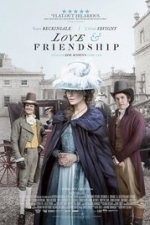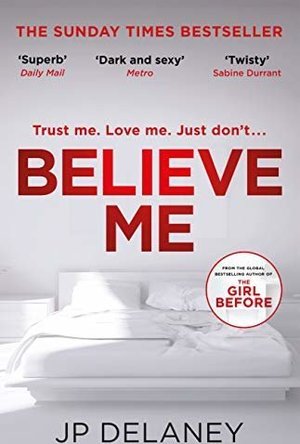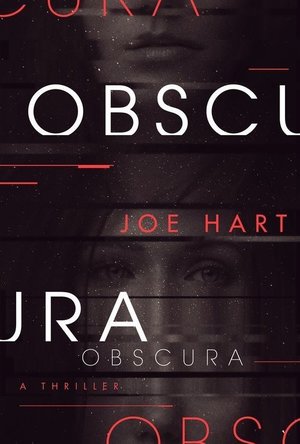Search

Bonnie and Clyde: Radioactive
Clark Hays and Kathleen McFall
Book
THE REVENGE OF BONNIE AND CLYDE Saving the future by exploding the past It's January 1945, six...
thriller Bonnie & Clyde Bonnie and Clyde adult fiction
Bob Mann (459 KP) rated Love And Friendship (2016) in Movies
Sep 29, 2021
Beckinsale excels in a comic tale of Girl Power in the 1790’s.
Set in 1790, Kate Beckinsale plays Lady Susan Vernon, an 18th century cuckoo-like ‘MILF’ (actually, more ‘LILF’, but using the ‘Lady’ term loosely) who with her glamourous demeanor is lusted after by both younger beaus as well as married aristocracy: an example being Lord Manwaring (Lochlann O’Mearáin).
Playing many different ends against the middle, Lady Susan – with the collusion of her American friend Alicia (Chloë Sevigny) – attempts to both find a suitably rich suitor for her daughter Frederica (Morfydd Clark) as well as finding a rich husband for herself to allow her to stay in the manor (sic) to which she has become accustomed. A tale of deception, pregnancy and a marriage of convenience follows: does Lady Susan have to choose between her sexual desires and the rich, stupid and dull Sir James Martin (Tom Bennett, “David Brent: Life on the Road”). Or can she have her cake and eat it?
Based on a Jane Austen short story, “Lady Susan”, this is a delight from beginning to end. However, it does require the attention of the viewer: characters get introduced to you in rapid fire succession, and keeping track of who’s who and how they interrelate is quite a challenge.
But this is a tour de force for Kate “Underworld” Beckinsale who delivers a depth of acting ability that I’ve not seen from her in the past. Her comic timing is just sublime, and while comedies are often overlooked in Awards season, this is a role for which she richly deserves both BAFTA and Oscar recognition.
Stephen Fry joins what is a superb ensemble cast. But outstanding among them is Tom Bennett who is simply hilarious as the nice but dim Sir James. The comic routine about his misunderstanding of “Churchill” (Church – Hill) – a running gag – is sublime and a challenger (with “Was that it t’were so simple”) for the comedy routine of the year.
Directed by Whit Stilman (“The Last Days of Disco”) from his own screenplay, this is one for the more sophisticated viewer: requiring of your full attention, but a treat for the eyes, ears and brain.
Playing many different ends against the middle, Lady Susan – with the collusion of her American friend Alicia (Chloë Sevigny) – attempts to both find a suitably rich suitor for her daughter Frederica (Morfydd Clark) as well as finding a rich husband for herself to allow her to stay in the manor (sic) to which she has become accustomed. A tale of deception, pregnancy and a marriage of convenience follows: does Lady Susan have to choose between her sexual desires and the rich, stupid and dull Sir James Martin (Tom Bennett, “David Brent: Life on the Road”). Or can she have her cake and eat it?
Based on a Jane Austen short story, “Lady Susan”, this is a delight from beginning to end. However, it does require the attention of the viewer: characters get introduced to you in rapid fire succession, and keeping track of who’s who and how they interrelate is quite a challenge.
But this is a tour de force for Kate “Underworld” Beckinsale who delivers a depth of acting ability that I’ve not seen from her in the past. Her comic timing is just sublime, and while comedies are often overlooked in Awards season, this is a role for which she richly deserves both BAFTA and Oscar recognition.
Stephen Fry joins what is a superb ensemble cast. But outstanding among them is Tom Bennett who is simply hilarious as the nice but dim Sir James. The comic routine about his misunderstanding of “Churchill” (Church – Hill) – a running gag – is sublime and a challenger (with “Was that it t’were so simple”) for the comedy routine of the year.
Directed by Whit Stilman (“The Last Days of Disco”) from his own screenplay, this is one for the more sophisticated viewer: requiring of your full attention, but a treat for the eyes, ears and brain.
BookInspector (124 KP) rated Believe Me in Books
Sep 24, 2020
The protagonist in this story is Claire, an extremely talented, but very unlucky actress. Due to the lack of green card and work, she is forced to work as a decoy in catching out cheating spouses. Until one dies. Who is the killer? Is it Claire? Is it a victim’s husband? Or is it someone else altogether? You will have to read it to figure that out! 😛
This book has a very interesting variety of characters, we have elegant and artistic actors; classy, intelligent and very poetic victim’s husband, and like always, insightful police. But the real star in this book was Claire. Her ability to transform into different characters was absolutely stunning, and I really loved that she shared how these transformations made her feel. I think it was a great insight into actor’s psyche.
The narrative always kept me on the edge. There are so many twists and deception, that you never know what to expect next. Sometimes it feels, that the plot is slowing down, but that is just a very creatively incorporated “quiet before the storm” phase. 😉 The narrative was told from a single perspective, but that was necessary to keep the suspense going, and it was fully sufficient for me. This novel discusses quite a variety of topics, such as foster families in the UK; actor’s struggles in the market; kinky sex community; mental institutions and their work methods; art, and when it becomes a danger to society; etc. Due to this wide variety, the plot didn’t have the chance to be boring for me. 🙂
I really enjoyed the writing style of this book, it was very insightful and creative. The ending was absolutely mind-blowing, it left me absolutely baffled. I had to sit down and rethink all the plot, to figure out what was real and what was the illusion. The chapters are pretty short, and once I started, they just flew by. 🙂 I liked that the setting of this book was constantly changing, that created more intrigue to me, as a reader.
So, to conclude, it is a very artistic, poetic and sophisticated psychological thriller, where suspicions and illusion plays an integral part. I absolutely loved the complexity of the characters and unexpected turns and twists, that is why, I strongly recommend to read this book, and I hope you will enjoy it as much as I did. 🙂
This book has a very interesting variety of characters, we have elegant and artistic actors; classy, intelligent and very poetic victim’s husband, and like always, insightful police. But the real star in this book was Claire. Her ability to transform into different characters was absolutely stunning, and I really loved that she shared how these transformations made her feel. I think it was a great insight into actor’s psyche.
The narrative always kept me on the edge. There are so many twists and deception, that you never know what to expect next. Sometimes it feels, that the plot is slowing down, but that is just a very creatively incorporated “quiet before the storm” phase. 😉 The narrative was told from a single perspective, but that was necessary to keep the suspense going, and it was fully sufficient for me. This novel discusses quite a variety of topics, such as foster families in the UK; actor’s struggles in the market; kinky sex community; mental institutions and their work methods; art, and when it becomes a danger to society; etc. Due to this wide variety, the plot didn’t have the chance to be boring for me. 🙂
I really enjoyed the writing style of this book, it was very insightful and creative. The ending was absolutely mind-blowing, it left me absolutely baffled. I had to sit down and rethink all the plot, to figure out what was real and what was the illusion. The chapters are pretty short, and once I started, they just flew by. 🙂 I liked that the setting of this book was constantly changing, that created more intrigue to me, as a reader.
So, to conclude, it is a very artistic, poetic and sophisticated psychological thriller, where suspicions and illusion plays an integral part. I absolutely loved the complexity of the characters and unexpected turns and twists, that is why, I strongly recommend to read this book, and I hope you will enjoy it as much as I did. 🙂
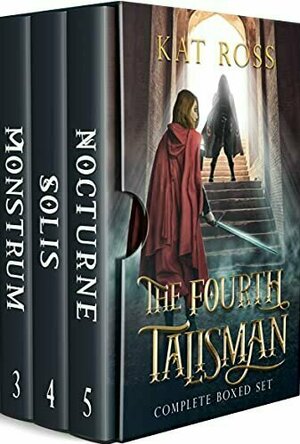
The Fourth Talisman
Book
Nocturne, a wilderness of eternal night. Solis, a wasteland of endless day. It’s been a...
Isabel Smith (34 KP) rated Obscura in Books
Jun 28, 2018
A fine example of genre-blending!
Joe Hart’s Obscura is a must-read for fans of science fiction and space travel. Dr. Gillian Ryan, a neural radiologist, is down on her luck. Ever since losing her husband to the mysterious new form of dementia called Losian’s, she has been working hard to find a cure for the disease that is now afflicting her only daughter. She’s so close to locating the exact neurons in the hippocampus that are affected by the disease when she gets word that her funding has been cut. With all the stress she is undergoing, it’s no wonder her opioid addiction makes a reappearance.
When an old colleague that now works for NASA offers her the opportunity to continue her Losian’s research with unlimited funding, she’s hesitant to take him up on the proposition because he wants something from her in return: to accompany a group into space and study the inhabitants of a United Nations space station who are experiencing neurological side effects due to working on a top-secret NASA project. Even though she hates the idea of leaving her daughter behind for six months, she knows she can’t pass up an opportunity like this and so she agrees to the terms.
Almost from the moment she steps off the space shuttle and onto the space station (or is it?) things begin to feel off. Her research assistant, Birk Lindqvist, starts experiencing major hallucinations and she is sedated once she discovers a startling truth that was initially kept hidden from her. Everything is called into question and nothing is at it seems. What’s really going on? Where is the station they’re supposed to be rendezvousing with? And why does it feel like there is a hidden presence on board with her after everyone goes into stasis?
Obscura is a heart-pounding, adrenaline-filled thriller set in the vastness of space. Is that great or what? The prospect of reading a psychological thriller combined with a space mission story is what initially attracted me to the novel. Joe Hart does not disappoint with his ability to blend the two genres seamlessly. He even tossed in the element of the ‘unreliable narrator’ with Gillian for a little while there during her opioid abuse and withdrawal periods where readers couldn’t judge which of her experiences were real and which ones weren’t. Genius! I loved every bit of it: the deception, the uncertainty, the space travel, the action scenes, the startling discoveries…everything!
When an old colleague that now works for NASA offers her the opportunity to continue her Losian’s research with unlimited funding, she’s hesitant to take him up on the proposition because he wants something from her in return: to accompany a group into space and study the inhabitants of a United Nations space station who are experiencing neurological side effects due to working on a top-secret NASA project. Even though she hates the idea of leaving her daughter behind for six months, she knows she can’t pass up an opportunity like this and so she agrees to the terms.
Almost from the moment she steps off the space shuttle and onto the space station (or is it?) things begin to feel off. Her research assistant, Birk Lindqvist, starts experiencing major hallucinations and she is sedated once she discovers a startling truth that was initially kept hidden from her. Everything is called into question and nothing is at it seems. What’s really going on? Where is the station they’re supposed to be rendezvousing with? And why does it feel like there is a hidden presence on board with her after everyone goes into stasis?
Obscura is a heart-pounding, adrenaline-filled thriller set in the vastness of space. Is that great or what? The prospect of reading a psychological thriller combined with a space mission story is what initially attracted me to the novel. Joe Hart does not disappoint with his ability to blend the two genres seamlessly. He even tossed in the element of the ‘unreliable narrator’ with Gillian for a little while there during her opioid abuse and withdrawal periods where readers couldn’t judge which of her experiences were real and which ones weren’t. Genius! I loved every bit of it: the deception, the uncertainty, the space travel, the action scenes, the startling discoveries…everything!
BookwormMama14 (18 KP) rated The Beautiful Pretender (A Medieval Fairy Tale, #2) in Books
Jan 2, 2019
Forced into deception by the Earl of Plimmwald, will Avelina be able to keep up the facade of being his daughter Lady Dorothea?
The king has ordered Reinhart, the new Margrave of Thornbeck to marry. Knowing he can not deny the king, Lord Thornbeck summons the ten women the king has chosen as suitable matches. For two weeks he plans to test these women to find the most noble lady among them, and choose her as his bride. Little does he know that not all of the ladies presented to him are truly born of nobility. When Avelina arrives at Thornbeck castle, masquerading as Lady Dorothea, she is convinced she will be found out. However as the days pass, she finds it easier to pretend to be a lady, instead of the maidservant she truly is. She has two goals: To make sure no one discovers that she is a servant, and to keep Lord Thornbeck from choosing her as his bride. For if her secret is revealed, destruction and ruin will be brought upon Avelina and her family.
The Beautiful Pretender is "Happily Ever After" at its finest! Melanie Dickerson has a beautiful gift for bringing classic fairy tales to life in an incredibly new and different way. Every page is filled with beautiful descriptions of the castle, clothes, grounds and lifestyle of the medieval times. These fairy tales (and especially Avelina's story) are much more realistic than the Disney adaptations (however I am addicted to fairy tales in general), and makes me feel like these stories could have actually happened. The Beautiful Pretender will have you biting your nails from the first page and there are plenty of suspenseful moments that will keep you turning those pages until you can not keep your eyes open any longer! (Yes, I say this from experience...) This story is such a lovely romance. Seeing in our characters something that I believe we can all identify with, the desire to be wanted and loved for who we are. And we must never forget the One who loves us more than anyone ever could. He who loves us exactly as we are, regardless of our heritage and in spite of our imperfections. Never forget that as a son or daughter of our Lord, you are royalty.
I received a free copy of The Beautiful Pretender from Thomas Nelson Publishers through Book Look Bloggers in exchange for my honest review. All opinions expressed are mine alone.
The king has ordered Reinhart, the new Margrave of Thornbeck to marry. Knowing he can not deny the king, Lord Thornbeck summons the ten women the king has chosen as suitable matches. For two weeks he plans to test these women to find the most noble lady among them, and choose her as his bride. Little does he know that not all of the ladies presented to him are truly born of nobility. When Avelina arrives at Thornbeck castle, masquerading as Lady Dorothea, she is convinced she will be found out. However as the days pass, she finds it easier to pretend to be a lady, instead of the maidservant she truly is. She has two goals: To make sure no one discovers that she is a servant, and to keep Lord Thornbeck from choosing her as his bride. For if her secret is revealed, destruction and ruin will be brought upon Avelina and her family.
The Beautiful Pretender is "Happily Ever After" at its finest! Melanie Dickerson has a beautiful gift for bringing classic fairy tales to life in an incredibly new and different way. Every page is filled with beautiful descriptions of the castle, clothes, grounds and lifestyle of the medieval times. These fairy tales (and especially Avelina's story) are much more realistic than the Disney adaptations (however I am addicted to fairy tales in general), and makes me feel like these stories could have actually happened. The Beautiful Pretender will have you biting your nails from the first page and there are plenty of suspenseful moments that will keep you turning those pages until you can not keep your eyes open any longer! (Yes, I say this from experience...) This story is such a lovely romance. Seeing in our characters something that I believe we can all identify with, the desire to be wanted and loved for who we are. And we must never forget the One who loves us more than anyone ever could. He who loves us exactly as we are, regardless of our heritage and in spite of our imperfections. Never forget that as a son or daughter of our Lord, you are royalty.
I received a free copy of The Beautiful Pretender from Thomas Nelson Publishers through Book Look Bloggers in exchange for my honest review. All opinions expressed are mine alone.
Naomi Forrest (42 KP) rated What Lexie Did in Books
Jan 9, 2019
This book was a Christmas book from a friend and I thought it looked quite cute. The first couple of pages were really easy to fall in to and after that, the pace is just perfect.
I know little bits about Greek culture but this book really sucked me in to that way of life and made me a bit jealous! To have such a strong sense of family and heritage must be a truly amazing thing. I like that the relationship between Lexie and Eleni goes one step further and there is even deeper bond that seems both unbreakable and yet incredibly fragile at times. I'm not giving any spoilers but the beginning and ending tie together beautifully and though the ending isn't completely happy, it was satisfying.
Shevah infuses humour throughout the novel, leaning on a truly authentic 9 year old voice and Lexie's perceptions of her family, God and halloumi. The pages were so sweet as well, with doodles around the outside as if it was Lexie's diary we are reading.
On the face of it, this novel is funny and sweet and full of friendship and family yet it digs deeper. The story centres around honesty. Lexie 'snitches' on a new friend and is reprimanded by the adults, who preach telling the truth, and upsets her friends and siblings. When she doesn't tell on a different friend for something else, she is also punished. She is expected to tell the truth by the adults and told to lie by Eleni but when she does lie, it upsets Eleni and has huge consequences. I thought Shevah exploited the notions of deception and truth cleverly through Lexie, who reflects on adults preaching the importance of honesty while lying about things to, if we are quite truthful, manipulate children. It highlighted that the answer is not as black and white as we want it to be and I enjoyed having my perceptions challenged.
All in all, I found this to be a vibrant, contemporary and culturally novel that shows Shevah has researched and engaged with Greek-Cypriot family life to an extremely high standard. Novels such as this are the reason I love Chicken House and the books they publish; their novels and authors are original, cutting edge and excite and engage children. I can't wait to read more of Shevah's work in future and get my year 6's fired up about this.
All in all, I found this to be a vibrant, contemporary and culturally novel that shows Shevah has researched and engaged with Greek-Cypriot family life to an extremely high standard. Novels such as this are the reason I love Chicken House and the books they publish; their novels and authors are original, cutting edge and excite and engage children. I can't wait to read more of Shevah's work in future and get my year 6's fired up about this.
There's plenty of letters and journals preserved regarding royalty, aristocrats and other rich and famous people but less about more ordinary people. OK, so most of ancestors would have been peasants/yeomen who would have been unlikely to be able to read, but every so often something does turn up which throws some light on our understanding of what we might consider to be more ordinary people. The Paston letters are one famous example and the story presented in the book is another discovery along the same sort of lines.
Our story begins in India, with William Jackson, who will be the father of our 'profligate son'. It is while in India that he meets his future wife and several other influential connections. A major incident here also has an impact on this William's future. The Profligate Son of the title is the son of this William Jackson, also called William Jackson, just to confuse the issue! Jackson senior had returned to England and was a reasonably wealthy man of the new middle classes. He had, however, made his fortune in trade and was keen for his only son to receive a good education and go into the law - one of the gentlemanly occupations at this time.
Unfortunately, William was not particularly interested in a good education, but far more interested in pursuing what he considered 'gentlemanly' pursuits - being idle and frivolous, drinking conspicuous amounts and consorting with women of easy virtue! In spite of the admonitions of his father and the pleadings of his affectionate mother, William continued into a downward spiral - resorting to forgery and deception to gain what it really seems he believes he was entitled to. The Georgian world, in some ways not dissimilar to modern days, was largely built upon trades-persons extending credit, which allowed William to get away with so much. We follow our anti-hero through various prisons and courts until he is finally transported to Australia. I find it most amazing that he never seems to repent of what he has done and really seems to believe that there has been a miscarriage of justice against him!
This story has been preserved through the writings of Mr Jackson, the father, and the letters between various family members which have been preserved for all this time. an interesting insight into the seamier side of Georgian life - and perhaps a lesson for people in these times who are too apt to live upon credit!
Our story begins in India, with William Jackson, who will be the father of our 'profligate son'. It is while in India that he meets his future wife and several other influential connections. A major incident here also has an impact on this William's future. The Profligate Son of the title is the son of this William Jackson, also called William Jackson, just to confuse the issue! Jackson senior had returned to England and was a reasonably wealthy man of the new middle classes. He had, however, made his fortune in trade and was keen for his only son to receive a good education and go into the law - one of the gentlemanly occupations at this time.
Unfortunately, William was not particularly interested in a good education, but far more interested in pursuing what he considered 'gentlemanly' pursuits - being idle and frivolous, drinking conspicuous amounts and consorting with women of easy virtue! In spite of the admonitions of his father and the pleadings of his affectionate mother, William continued into a downward spiral - resorting to forgery and deception to gain what it really seems he believes he was entitled to. The Georgian world, in some ways not dissimilar to modern days, was largely built upon trades-persons extending credit, which allowed William to get away with so much. We follow our anti-hero through various prisons and courts until he is finally transported to Australia. I find it most amazing that he never seems to repent of what he has done and really seems to believe that there has been a miscarriage of justice against him!
This story has been preserved through the writings of Mr Jackson, the father, and the letters between various family members which have been preserved for all this time. an interesting insight into the seamier side of Georgian life - and perhaps a lesson for people in these times who are too apt to live upon credit!
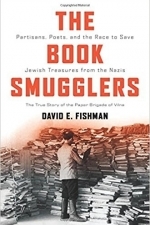
The Book Smugglers: Partisans, Poets, and the Race to Save Jewish Treasures from the Nazis
Book
The Book Smugglers is the nearly unbelievable story of ghetto residents who rescued thousands of...
history

The Art of War by Sun Tzu
Podcast
The Art of War is a 6th Century BC Chinese treatise on war and military strategy known for its...
